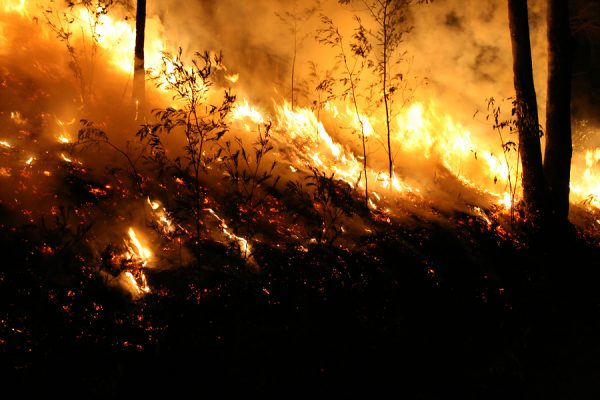
Here in Grants Pass Oregon we have been pretty lucky this summer, and have only experienced a few small fires. Especially when compared to last summer in which we had 3 large fires that made my hometown a miserable smoky place to be. Luckily my rental properties are not near forested areas but my home is and could be at risk if a forest fire were started in the area.
Protecting your home and/or real estate investments from forest fires is a big concern in many parts of the United States and it is vitally important to be prepared for the worst scenario. Below, I have listed some ways to protect your home and real estate investments from the ravages of a forest fire.
1. Create a defensible space around your home. Modifying, reducing or clearing materials or vegetation around your home creates a barrier and will slow the spread of wildfire toward your home. Having lush green vegetation such as a lawn can make a good fire break.
2. Make sure gutters, vents, the roof and porches are free of flammable debris such as leaves, branches, tree needles, etc. these materials can catch fire and create an area where flames can touch the wood framing of the home. Another common mistake people make is stacking wood close to there home. While this is convenient in the winter it could provide a nice place for an ember to land and catch fire so DO NOT STACK WOOD NEXT TO YOUR HOME.
3. Use fire-resistant building materials. A tile, metal, or composite roof is much safer then a wood shingle roof. Also, concrete siding or stucco are fire-resistant. An example of something we did to reduce the fire hazard around our home this year is, we took down our wooden lattice that surrounded the area beneath our deck and replaced it with vinyl to reduce the potential of ignition of our home.
4. Using fire-resistant plants in your landscaping will slow the fire and substantially increase the chance that your home will survive a wildfire. Avoid plants that contain volatile oils that can burn intensely and increase the fire risk around your home. Other plants you should avoid are those that create fine, dry, or dead material such as twigs, needles, and leaves. Another example of something we did to reduce the fire hazard around our home this year is, we cut down a Leland Cyprus that was within a couple feet from our house and we limbed up a cedar tree.
5. If you live in a rural area that is outside the cities fire department jurisdiction consider paying for rural fire fighting services, if available.
6. Last but not least, in the event your home doesn’t survive a forest fire, make certain that your home owners insurance is comprehensive and truly represents the value of the items in your home. You really need to give some consideration to the replacement cost of the things you own and give the insurance company a realistic price.
I wish you all good luck if a forest fire ever threatens your home or real estate investments and I also wish luck to all of our fire fighters out there!